April 20, 2025 | 16:36 GMT +7
April 20, 2025 | 16:36 GMT +7
Hotline: 0913.378.918
April 20, 2025 | 16:36 GMT +7
Hotline: 0913.378.918
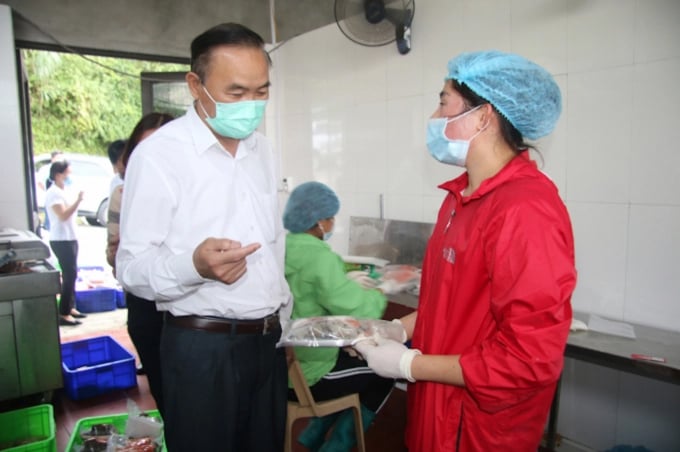
Deputy Minister of Agriculture and Rural Development Phung Duc Tien visited Thuc Mai salmon farm (Sapa). Photo: H.D.
Tourism is gradually recovering in Sapa, a famous district in the up-north province, Lao Cai. Going to Sapa, visitors can experience, admire and discover about the northwest mountains and forests, especially accessing and learning about the cultural identity of the Mong, Dao, Giay, etc. ethnic groups living in Sapa.
Visitors coming here have the opportunity to enjoy the local dishes, especially salmon raised in Sapa. At some restaurant, tourists are served fresh salmon. Sapa salmon has earned and maintained its reputation for years.
Nguyen Mai Phuong, a tourist from Hanoi says that her family travels to Sapa every summer. Sapa has a very special weather, while in Hanoi it is hot, it is cool here. People in her family love dishes of salmon salad, fried salmon skin... “Dishes of Sapa salmon are all good, delicious and fresh at reasonable prices,” Phuong says.
After Covid-19 pandemic, tourists are returning to Sapa, so the demand for salmon will be great.
Thuc Mai salmon farm in Can Ho Mong village, Ngu Chi Son commune (Sapa, Lao Cai) is one of the first farms in Sapa to standardize the process of raising and processing salmon. Tourists can buy packaged products to bring home as gifts.
Whole smoked salmon, sliced salmon, salmon fillet, etc. of Thuc Mai salmon farm are products with 3 OCOP stars of Lao Cai province. To do this, the farm owner has applied salmon farming according to VietGAP standards. Farming establishments also actively send samples for analysis, quality assessment and announcement of nutritional indicators of products. When products of Sapa salmon get OCOP certification, consumers feel more secure and confident about the quality, especially the issue of food safety.
Le Trung Thuc, owner of Thuc Mai salmon farm, says that when raising cold-water fish, we apply high technology, import seeds from the Institute of Cold Water Fisheries and the food source meet the standard.
Thuc Mai salmon farm is one of the first 7 cold-water fish farming establishments in Lao Cai to actively invite experts to analyze and assess the environment, help them meeting all the standards to get recognized for the farming process according to VietGAP standards.
“The most important thing in salmon farming is to keep the water source clean, periodically prevent fish diseases by bathing in dilute salt water, so that the salmon products will meet the standards. In the coming time, we will strive to develop more salmon-related products,” Le Trung Thuc shares.
"Salmon is collected once a year, if not, salmon will lay eggs, the meat will not be delicious and the color is not suitable for making salad. Therefore, when processing salmon products, you must choose the right time and choose the right way. For example, salmon sausage is suitable for the elderly and children, so the farm produces more salmon cartilage products suitable for young consumers," Thuc Mai adds.
Currently, each year, this farm supplies hundreds of tons of commercial salmon to the market. In addition to the salmon consumed in Sa Pa, salmon processed to supply to consumers through retail channels and at supermarkets accounts for about 50% of farm-raised salmon.
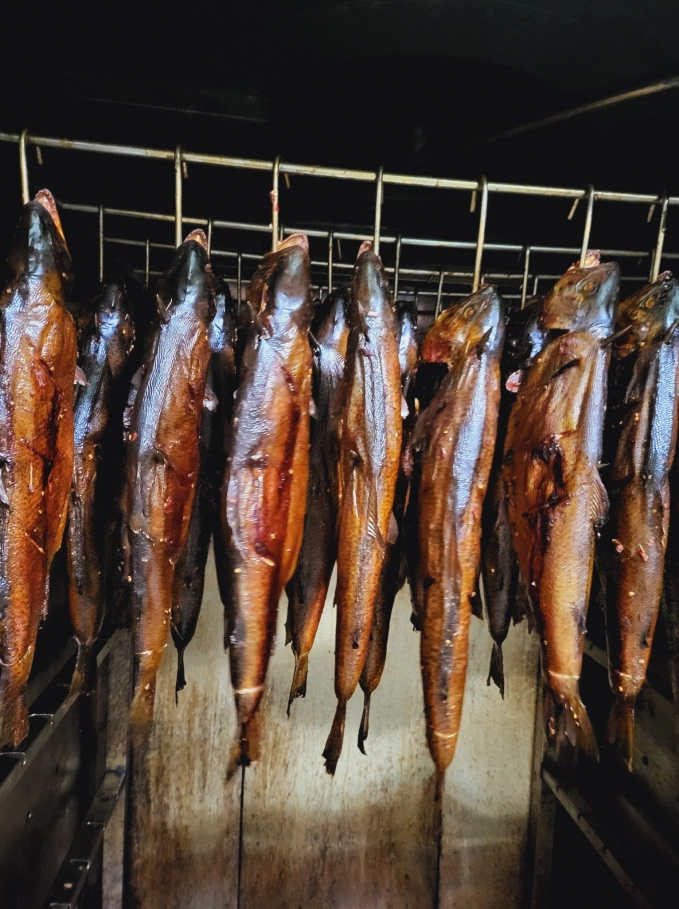
Processing smoked salmon at Thuc Mai salmon farm. Photo: H.D.
In the locality, the Economic Department of Sapa town is the state management agency that directly supervises, inspects and evaluates periodically or irregularly in order to help salmon farms maintain their prestige in the market.
"Thuc Mai salmon farm is currently being rated as 3 stars, we have plan to upgrade their products in the coming years," Tran Thi Lan Huong - Deputy Head of Economic Department of Sapa town says.
Lao Cai is a province with the advantage of developing cold water fish farming. With a spring water system at a low temperature of 8-20 degrees Celsius, if it is properly put into use for salmon and sturgeon farming, there are abilities to achieve very high efficiency, especially in Sapa, Bat Xat, Bac Ha, etc.
Cold water fish farming contributes to economic development, creates new production models and new farming animals, diversifies products and contributes to job creation for a part of the population, especially those living in the remote and ethnic minority areas.
Therefore, the management and use of water resources has been guided by specialized agencies and the People's Committees of districts and cities to the establishments and production households. Cold water aquaculture facilities are currently using water sources from streams in the area, like the other economic fields such as rice production, crops, etc.
According to the Department of Agriculture and Rural Development of Lao Cai province, cold water fish farming establishments with a wastewater discharge volume of less than 10,000m3 according to regulations are not required to submit an environmental protection plan and do not have to apply for a permit to discharge wastewater into water sources.
However, in order to ensure proper water management and use, it is still necessary to strictly manage water resources in cold water fish farming, to overcome the wasteful use of water resources. Thereby, water resources will be considered as commodities and resources for development, users have to pay fees.
In order to continue to improve the efficiency of water resource management and ensure sustainable development, it is necessary to continue promoting the dissemination of the provisions of the law on the use of water resources, raising awareness and responsibility in protecting water resources, preventing and combating pollution, degradation and depletion of water resources.
At the same time, it is necessary to encourage projects to apply scientific advances in the production process, use a circulating water purification system to reuse water resources, avoid disputes over water sources... All these policies and measures are to ensure water sources for sustainable development of cold water fish.
Sapa salmon is mainly raised in Ngu Chi Son commune (Sapa, Lao Cai). This area has an altitude of over 1,500m and is quite cold. Tran Chung Hung, owner of Song Nhi restaurant chains and also the owner of a salmon farm, says that, Sapa salmon is always a priority in the menu of tourists.
Translated by Duc Thuan
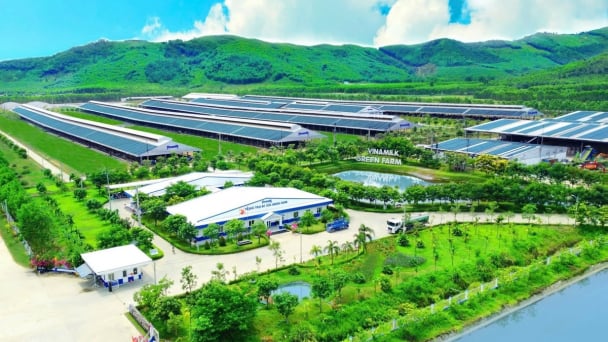
(VAN) Le Hoang Minh, representing Vinamilk, shared the company's experience in energy saving and green energy transition for production at a workshop held during the P4G Summit.
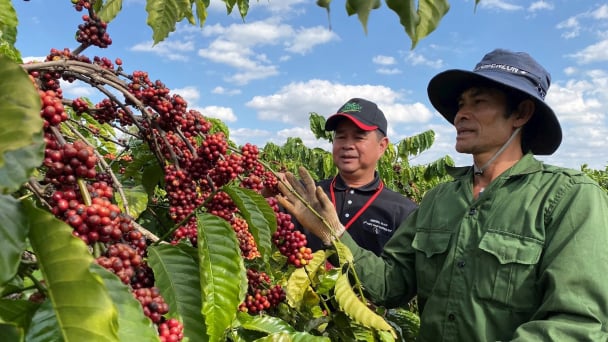
(VAN) Businesses emphasize fairness and equality when integrating social factors into their sustainable development strategies.
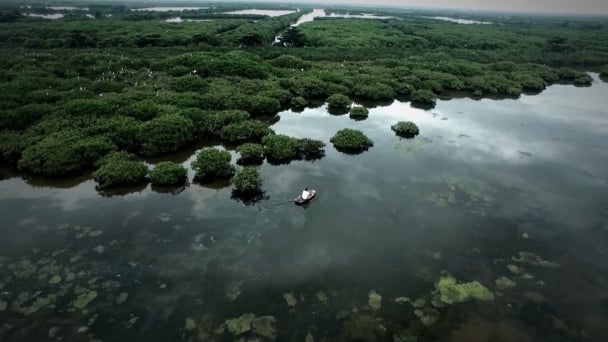
(VAN) French organizations and enterprises propose that Thai Binh province provide potential and long-term cooperation contents related to climate change response and green industrial development.
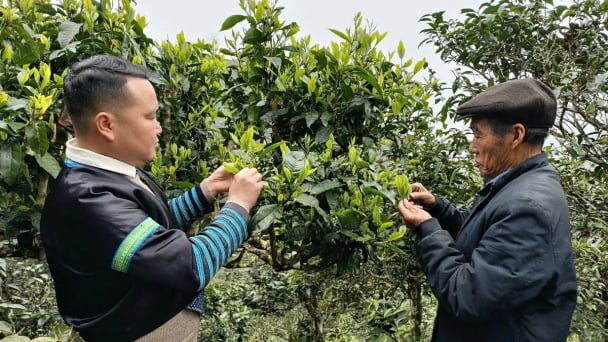
(VAN) Shan Tuyet tea is considered a 'heavenly treasure'. The H'mong people allow the tea to grow naturally, adhering to organic production principles, with the aim of exporting the product.
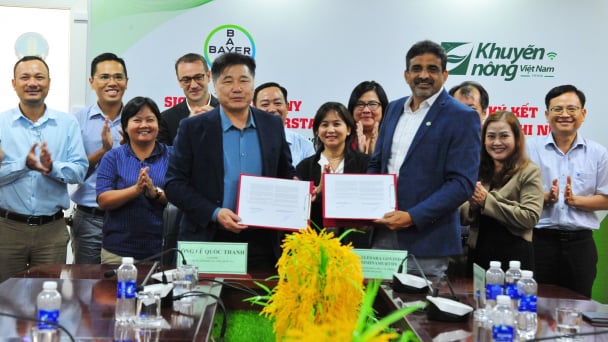
(VAN) Bayer Vietnam and the National Agricultural Extension Center have signed a partnership agreement to expand the development of effective and safe farming models for rice, durian, and coffee.
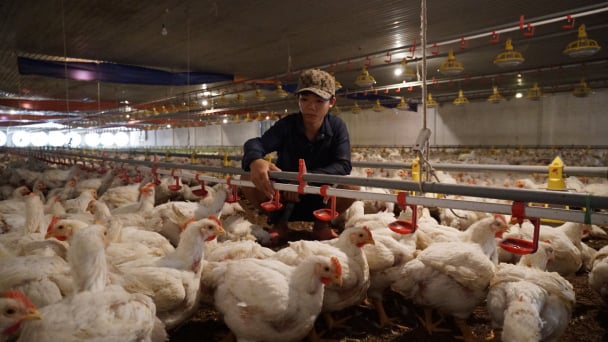
(VAN) Tay Ninh province possesses all the favorable conditions, from natural advantages to geographic location and social harmony, to drive economic development, particularly in attracting investment and advancing modern livestock farming.
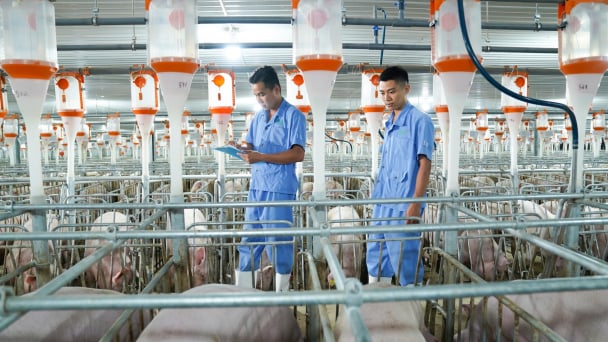
(VAN) Notably, every link in BAF's entire closed livestock value chain Feed - Farm - Food has received international certification.